
Volker Schmitz


Global Head of Supply Chain Operations, HP Deutschland
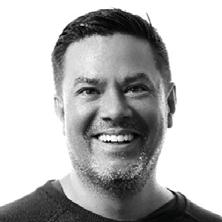
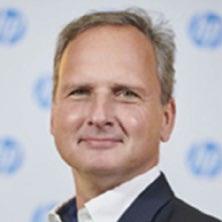
DRIVING SUPPLY CHAIN OPTIMISATION WITH INDUSTRY LEADING EXPERTISE
Holger Langbein
VP Logistics
Robert Bosch GmbH
Yogith Krishna UK Import Supply Lead PepsiCo

Martin McKie
Principal Advisory Consultant, Supply Chain
Amazon Web Services Angelo Dalporto

Deputy Vice President Supply Chain UK/ Ire+Benelux Dormakaba
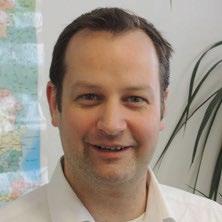
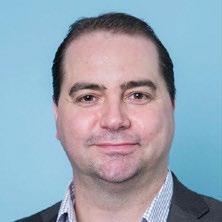
Torsten Becker
Head of Study
Program Supply Chain Management
SRH Berlin University of Applied Sciences Hans Ehm

Senior Principal Engineer Supply Chain, Head of Supply Chain Innovations
Infineon Technologies AG
Conrad Edgren
Chief Logistics Officer Motatos/ Matsmart
Andreas Gendo
Head of International Supply Chain & Logistics KOTÁNYI
Use the discount code for 20% off your delegate pass scms-summit.com/register-your-place SCMS20
Hello autumn! As we welcome the changing of the seasons, we are excited to bring you our October edition of Digital Innovation magazine. We have three fantastic interviews lined up for you this issue, so look no further for your monthly serving of must-read European tech news!
First up is Tilo Hergarten, Head of Digitalisation at Emons (p6). Tilo has been spearheading some fascinating digital projects at the well-respected transport and logistics company, so it was interesting to hear his plans for bringing the business into the new era.
Next, we have our interview with Florian Ramsbeck, International Sourcing Coordinator, and Andrew John Zeller, Managing Director International and Co-CEO DACH, at Adorsys (p40). Together, they shed light on the company’s ambitious strategy for global expansion post-pandemic.
And last but by no means least, we feature our chat with Henna Hynynen, Head of Finance, Partnerships & Marketing, at Blockstore Group. Henna’s organisation has a vision for 24/7 autonomous and automated grocery stores across Europe. Turn to page 68 to find out more.

Plus, check out our articles on the latest medtech advancements (p28), luxury technology pioneers (p48), and the most recent metaverse app roll-out (p56).
Interested in what’s happening in the European drone development space? Drone Hopper is this issue’s start-up in the spotlight (p100).
Have a good month!
Anna McMahon Editor

Danielle Harris Director
d.harris@ithink.media
Tom Barnes Director
t.barnes@ithink.media
Daniel May Senior Digital Designer


design@ithink.media
All rights reserved. Every effort is made to ensure the accuracy of material published in Digital Innovation Magazine. However, the company cannot accept responsibility for the claims made by advertisers or contributors, or inaccurate material supplied by advertisers.

Digital Innovation is a product of iThink Media Ltd. Company Registration Number: 10933897. Company Registered in England and Wales
 by
by
3 +44 (0) 203 890 1189 enquiries@digitalinnovationeu.com
editorial@ithink.media
Published
We talk digital with Tilo Hergarten, Head of Digitalisation at Emons


Quantum – the tech Europe can't afford
Adorsys’ plans for global expansion post-pandemic
Fractus and the UPC created the Fractus-UPC Deep Tech Hub
6
82
90
tech race to lose
The UK and Europe could become a ‘medtech powerhouse’
global post-pandemic
Henna Hynynen, Head of Finance, Partnerships & Marketing at Blockstore Group, on 24/7 autonomous and automated grocery stores
Four European tech brands that have transformed the luxury market


Horizon Worlds metaverse app is launched in Spain and France

UPC have Fractus-UPC

Find out more about aeronautical engineering company, Drone Hopper


5
40
68
100
56
48
28
FROM TO TRADITION FUTURE
Tilo Hergarten, Head of Digitalisation at Emons, talks through some of the exciting digital projects he has been recently spearheading.
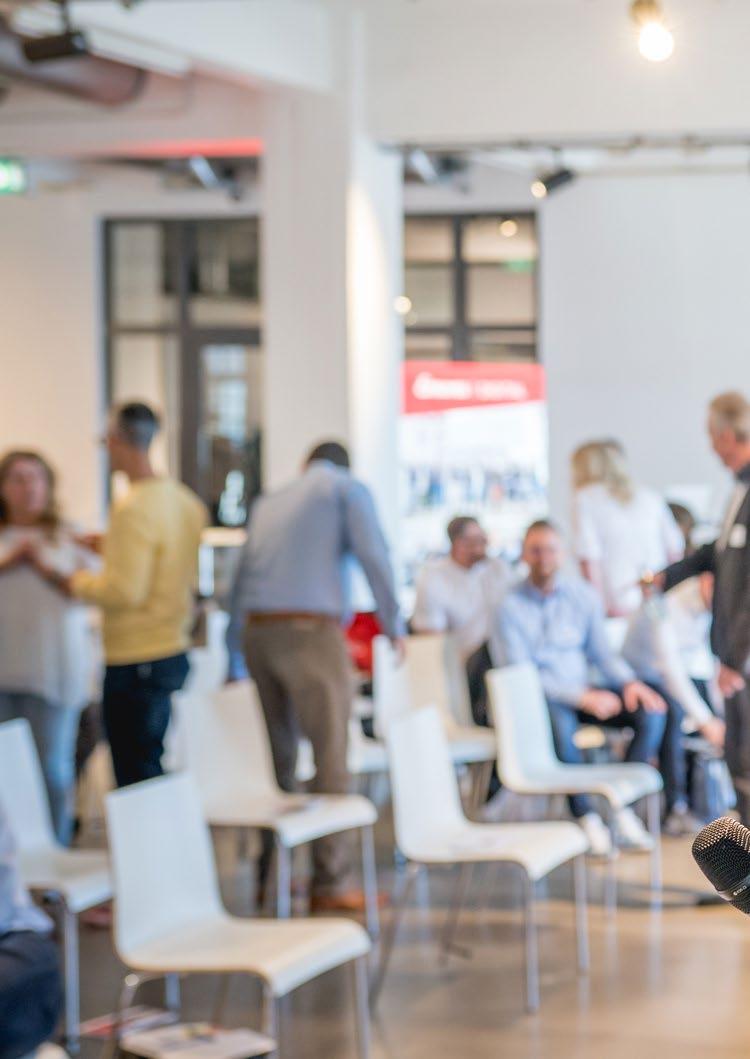
COVER STORY
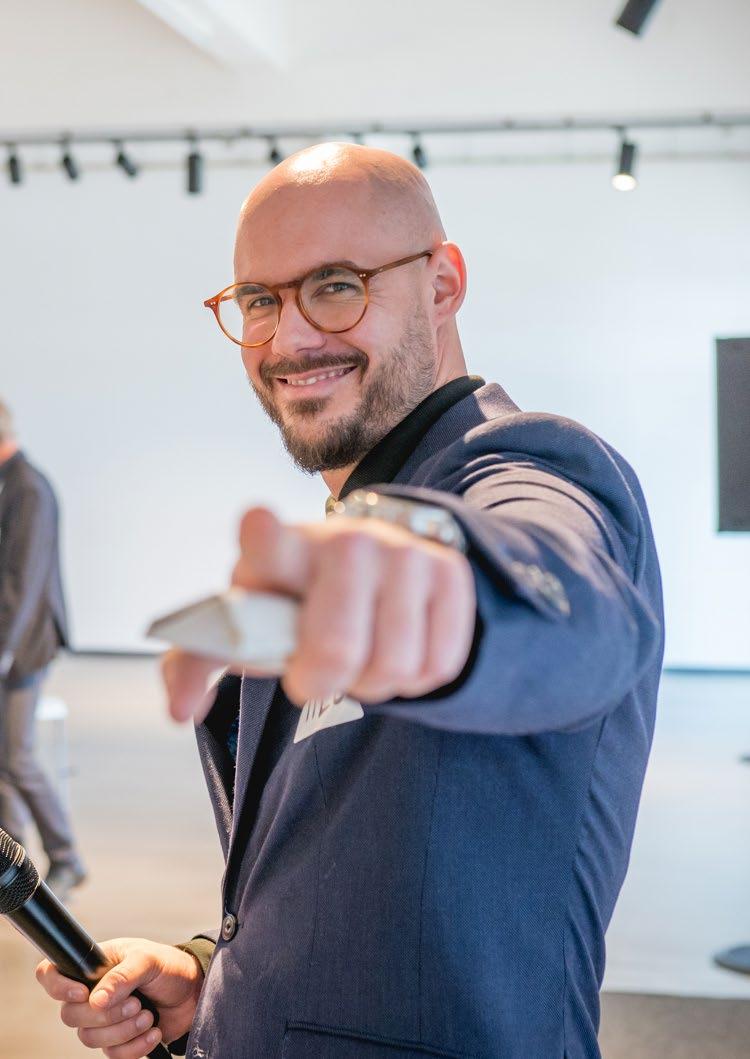
TILO HERGARTEN JOINED EMONS IN 2021 AS HEAD OF DIGITALISATION, WHICH SOON BECAME EMONS | DIGITAL. IT IS BASED ON THREE PILLARS, WHICH TILO DESCRIBES
AS FOLLOWS, “THE FIRST PILLAR IS DIGITAL AND CULTURAL

TRANSFORMATION.
he goal of this pillar is to share knowledge of what digitalisation means in terms of identifying and developing new (digital) business model ideas within the company, as well as how it affects us as a society, with changing behaviours and how we adapt to meet customer needs. We can either transform our products and services, or we can create new ones. By creating, testing
and developing new business model ideas, we can harness the benefits ourselves, and then bring them to the external market.”
This leads us to the second pillar, which refers to the structured incubation program at Emons | DIGITAL. Tilo continues, “We are always looking for new business model ideas from our internal colleagues. People can apply for the Emons | DIGITAL incubation

8


9
program by creating a pitch to be presented to the digital board, which then decides which team will go into the program.”

The incubation program itself is structured into three phases:
1. Identifying a need or a problem to be solved from a customer perspective.
2. Creating a prototype, and testing it to see if a solution can be found.
3. If successful, launching it onto the market and scaling it from there.
Tilo adds, “Between each of these phases, the teams need to do a pitch to make sure they can enter into the next phase, as we can always decide not to continue with a project. It is all based on the KPIs we are setting. If there is insufficient validation for a project, it will be discontinued.”

10

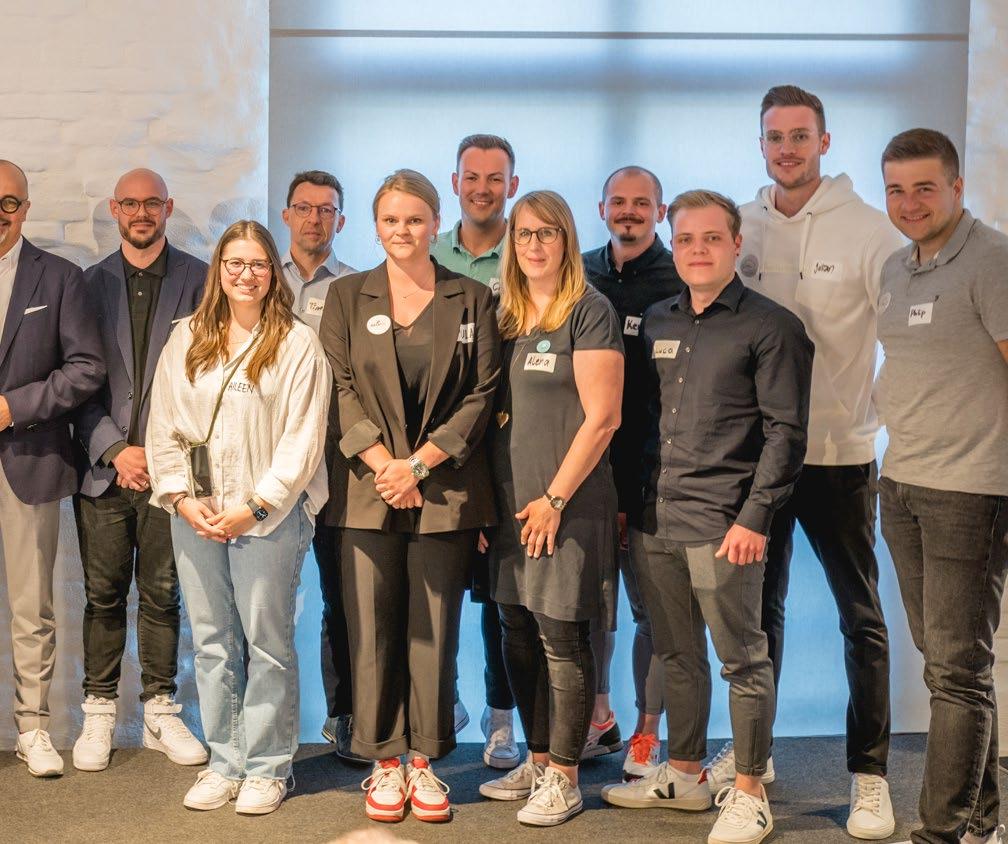
“Emons was established in 1928 and has almost 100 years of history and culture. As such, the goal of looking for new digital business models, strategically developing them, and putting them out onto the market is not common practice for SME”
11

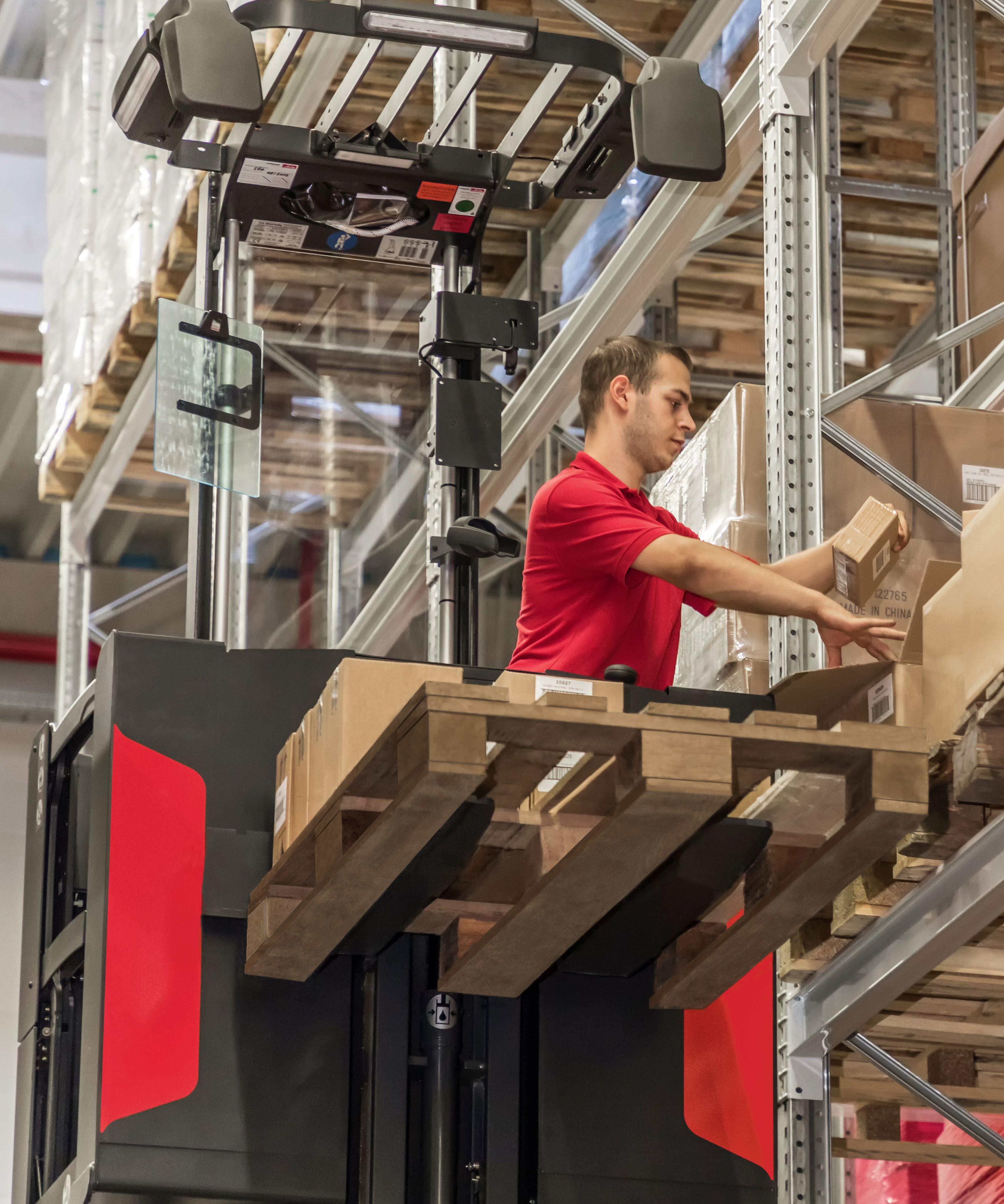
12
The third pillar is acceleration. Tilo says, “With all the projects we internally identify, we are looking for technology partners. We are specifically wanting to identify which technology providers can help us because we are a transport and logistics company, not a software developer. We need our partners to co-create the products with us from a technical perspective because they have the experience. In the end, there is potential for them to have a financial benefit too. For example, in terms of a revenue sharing model. That also ensures their long-term commitment.”
Emons was established in 1928 and has almost 100 years of history and culture. As such, the goal of looking for new digital business models, strategically developing them, and putting them out onto the market is not common practice for SMEs. Tilo explains, “This is why the first pillar was so important to me. We needed to find a way to respect the company’s history and culture whilst looking to see how we could create new things based on the


13
digital environment. This kind of transformation is a challenge for many SMEs with a similar kind of history to ours.”

A fourth pillar would therefore be to externalise what Emons | DIGITAL is doing internally, giving other SMEs the chance to run through the incubation
program and start to innovate. Tilo adds, “We are role models for many SMES in terms of our digital transformation journey. We were recently awarded a Digital X Award in the category Digital Transformation for SMEs.”
Going back to the third pillar, Tilo highlights some of the exciting

“Schunck has good connections to other potential customers, and if we are onboarding new customers, we have good links to Schunck as an insurance company, so it is a win-win situation for both of us”
DIGITAL SOLUTIONS FOR YOUR INSURANCE COVER
The SCHUNCK GROUP is the leading insurance broker for the logistics industry in Germany. As a special service, SCHUNCK provides customers with IT solutions specially tailored to the respective industry and customer requirements.

Our IT solutions and digital applications range from a customer portal for digital contract and claims management to fleet management systems and software for claims processing or certificate management. These state-of-the-art IT solutions are developed by highly qualified IT experts with many years of industry know-how and can be individually integrated into the systems of SCHUNCK customers, for example via interface (API).

With MySCHUNCK, we are setting standards in terms of digital contract and insurance management as well as customer usability. MySCHUNCK makes the complex world of insurance more understandable for our customers and is simple, clear, fast and secure. In addition to the digital overview of all insurance documents and contract management, our customers can also report claims directly online via the portal. As a central access point to all SCHUNCK IT applications, MySCHUNCK ensures cross-device, mobile access to all their insurance documents and policy documents - in multiple languages.
As a special broker for logistics, SCHUNCK offers the possibility to book insurances for all your transports online around the clock with the application EPAS (electronic premium registration system). Easily and quickly created and clearly documented.
The accompanying documents are immediately available and the premium calculation is also carried out in real time. Extensive reporting functions enable quick and easy evaluation of all data. As everywhere in the logistics industry, every minute counts. This makes it all the more important to be
able to generate the right insurance cover immediately.
Certificates of existing insurance cover often play an important role in transports. With Certificates Web, SCHUNCK also offers an innovative IT solution for this purpose, with which our customers can independently create and forward accompanying documents as insurance certificates, regardless of time and place.
No matter how much care is taken - with the large number of journeys made by forwarders and carriers, an accident can unfortunately never be completely ruled out. With PHOENIX, SCHUNCK provides an IT solution with which transport and traffic liability claims can be registered online and conveniently managed.

Simple recording, administration and evaluation of claims - all this is made as easy as possible for SCHUNCK customers with PHOENIX - through fast processing by means of direct entry and assignment of a claim number. Permanent access to the current status of claims processing and payment as well as claims analyses on quotas, history, policy debit and premiums provide the perfect overview at all times. We also offer a modern interface for claims notifications, which you can integrate into your own system.
With SCHUNCK you are more than just insured!
FIND OUT MORE ABOUT SCHUNCK GROUP
projects that Emons | DIGITAL is currently working on in partnership with Quality Hosting, Schunck, and Logo Consult. Tilo says, “As we are a digitalisation department within Emons, we are supporting the core business with digital transformation, transformation management, and change management etc. The implementation of Microsoft 365 across the whole business is
internal, manual effort is enormous. To avoid this, we have developed Click & Claim to make claims processing as simple as possible, highly automated and transparent. This enables us to report claims much faster to our insurance broker, which, for us, is Schunck. With the gathered data, we will be able to analyse the occurring damages in terms of packaging, handling etc, and

a challenge, so Quality Hosting is strongly supporting us with that.”
Another project, which is currently in the spin-off process, is called Click & Claim. It addresses the internal problem Emons has been experiencing with transport management. Tilo explains, “Transport damages occur in every logistics company and cause frustration among customers due to long processing times and complicated reporting procedures. In addition, the
come up with individual and specific suggestions in order to avoid damages in the future.”
Tilo says the solution that Emons | DIGITAL is building with the help of its partner will be of interest to other transport and logistics companies across Europe. He elaborates, “There is great potential for the external market. We are in the middle of the last phase, and the product is already set for internal use. We will then bring it out onto the market
“The implementation of Microsoft 365 across the whole business is a challenge, so Quality Hosting is strongly supporting us with that”
18

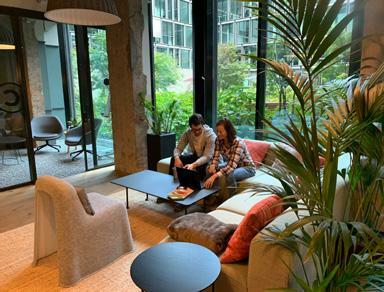









 Tailor-made solutions & Additional services for your specific IT, Cloud & Security needs.
Tailor-made solutions & Additional services for your specific IT, Cloud & Security needs.

together with Schunck. They have good connections to other potential customers, and if we are onboarding new customers, we have good links to Schunck as an insurance company, so it is a win-win situation for both of us. We always like to share our projects with our partners because I strongly believe in cocreation and innovation. I think you will get the best results if you work on something together, with
friendly. We took the database and digitalised it because the product descriptions are often not intuitive. As a regular user, you may write out the wrong description from a customs perspective, perhaps making it too technical. We used AI to match the information to the technical description to get the right results. We want the company producing the goods to not have to spend too much

different insights and different perspectives.”
Also at the same phase is another project called Custify that Tilo and his team are working on around customer tariff numbers. Tilo continues, “You have to look up a tariff number for any goods you are producing to be able to ship them overseas through customs. It is a lot of hard work to get hold of these numbers because the process is not digital, and especially not user-
time identifying the right tariff numbers.”
Logo Consult is Emons | DIGITAL’s long-term technology partner when it comes to CRM systems. Tilo elaborates, “Based on the technology and innovation that Logo Consult is providing, we can understand our customers in terms of the goods they are shipping, their industries, and whether the historic data suggests we should strengthen or step away from the relationship.
“Logo Consult help us in our daily business to avoid mistakes and to increase the efficiency of our operations”
21
“We can therefore use external data and market trends to have a better understanding going forward. Logo Consult help us in our daily business to avoid mistakes and to increase the efficiency of our operations.”
As for the future scope of Emons | DIGITAL, Tilo is excited by a number of trends and technologies that are currently gathering pace. He explains, “I am really curious about the future of transportation. For example, will our fleets be


22
diesel in the years to come, or will they, for example, use hydrogen fuel cells? Bringing more sustainability into transportation is a priority, so we are looking at how we can achieve this by using the new technology that is available.”
The company has also been exploring new technologies and trends that increase efficiency in different ways. Tilo adds, “It will be interesting to see what the future will look like. Will truck drivers be able to work from home by steering their vehicles
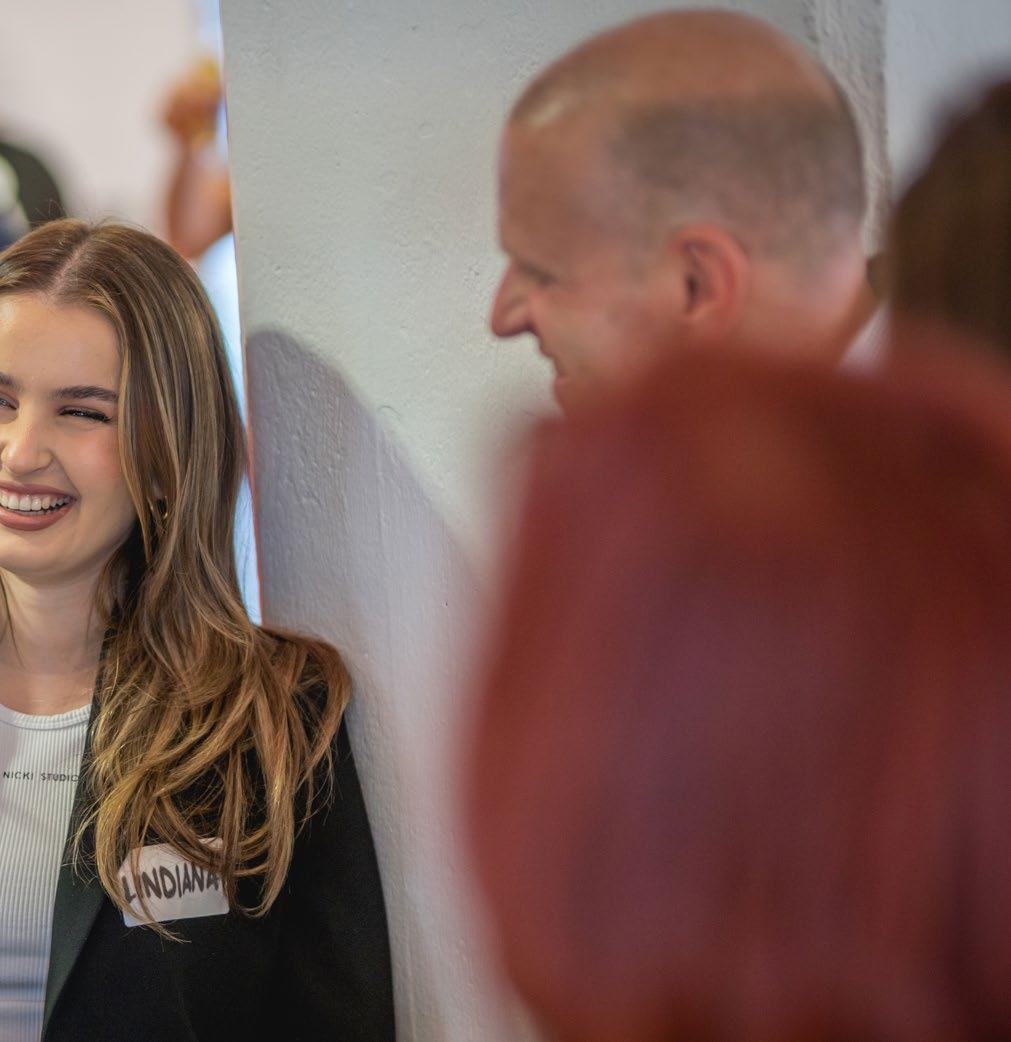

23
remotely? The important point to remember is that a lot of these projects have the end goal of making life easier for the customer. The customer perspective is key, and their needs must be addressed as soon as possible.”
The sender of a delivery also has expectations which can

be improved upon through digitalisation. Tilo explains, “Logistics has not changed very much over the last few decades. With new digital business models, a lot of changes are now taking place, so how can we make it simpler for someone who wants to send something? We are researching AR technology

“We are looking at the whole market, how we are participating in it, and the role we will play in the future”
24
Our Maxime: Make it simple
It is generally the simple things that are successful. We have been a partner to the logistics industry for more than 100 years!
We make the complex insurance business unders tandable for you and we make your world simpler.



100 % customer focus, full commitment to the best insu rance solution and top service – that’s SCHUNCK.
SCHUNCKMore than just insured
The SCHUNCK GROUP is a member of Ecclesia Group.

25
www.schunck.de/en www.schunck.de
to facilitate the process of sending goods.”
The new digital business models are changing how things will be done in terms of customer relations, sales, marketing, and a whole host of other business operations. Tilo concludes, “We are looking at the whole market, how we are participating in it, and the role we will play in the future. Our focus will be to continue to come up with our own ideas, which we could potentially bring out onto the market.”

For further information on Emons, visit www.emons.com www.emons-digital.de

“Our focus will be to continue to come up with our own ideas, which we could potentially bring out onto the market”
26


27

The UK and Europe could powerhouse’, says Life President, CEO and Founder,
MEDTECH
could become a ‘medtech Life Science Intelligence Founder, Scott Pantel.



30 Long waiting lists plus overburdened staff and infrastructure – a legacy of the pandemic – highlight a broken healthcare model needing urgent rescue by medtech innovations.
ummarised by the World Economic Forum (WEF), “Our current capital intensive, hospital-centric model is unsustainable and ineffective.”
Medtech breakthroughs could radically transform healthcare and create more than a billion operators’ jobs globally by

2030. Medtech is everything from robotic surgery, innovative cardiovascular devices, and wearable health monitors, right up to mobile diagnostic machines and 3D printing devices, plus many other pioneering systems for driving down healthcare costs. Apart from significant power to save lives and enhance

31


32
longevity, medtech innovation is also generating investment and revenue for an irresistible industry momentum, reckoned to be worth US$500 billion globally within the next couple of years, according to Statista.
Further sector acceleration is expected from major events. The LSI (Life Science Intelligence) Europe ‘22 – Emerging Medtech

“LSI now wants to enhance Europe's medtech sector”
Summit last month was the first European summit of its kind for the influential medtech market intelligence consultancy. These summits combine a stunning location and lavish programme featuring headline industry speakers, VIPs and specialists, to gather the industry's most innovative start-ups, active investors and strategic buyers, so they can network and build future healthcare.

33
LSI now wants to enhance Europe's medtech sector. The continent has 27,000 companies in the sector, employing 675,000 people, with Germany, (210,000), the UK (100,000) and France (85,000) leading.

LSI President, CEO and Founder, Scott Pantel, said, “Many European nations are already global medtech players. Aligning these national

“We have succeeded impressive line-up figures from across and major international
34
SCOTT PANTEL
components could create a true continental medtech powerhouse, attracting even greater investment to make a really big impact on healthcare in a world shown to be cruelly exposed to major health threats.”


35 succeeded in gathering an line-up of key medtech across all of Europe international investors”
Over 100 medtech innovators from across Europe presented, while major figures at the LSI European event included global top 10 medical
PANTEL
device company Siemens Healthineers’ Germanbased CEO Bernd Montag (keynote speaker); Parisbased Antoine Papiernik, Managing Partner at Sofinnova Partners, a leading pan-European venture capital firm in life sciences, specialising in healthcare and sustainability; and Swissbased Claudia Herben, VP Strategic Solutions Medical Devices EMEA at Johnson & Johnson.
Scott added, “We have succeeded in gathering an impressive line-up of key medtech figures from across all of Europe and major international investors. This LSI European summit also acknowledges great achievements and will become the go-to medtech industry event for Europe.”

Source: www.prnewswire.co.uk
For further information on Life Science Intelligence, visit www.lifesciencemarketresearch.com

36


37
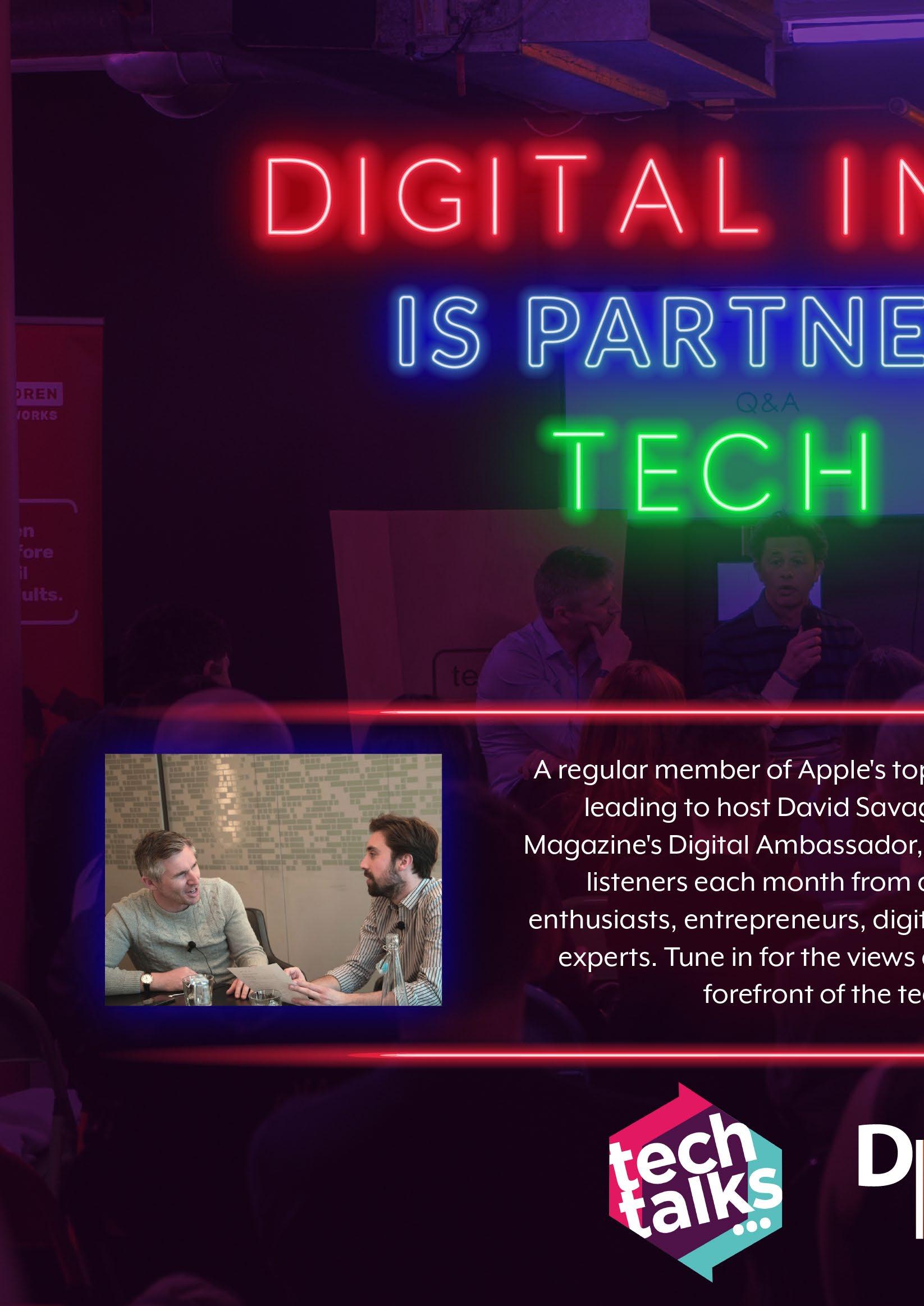
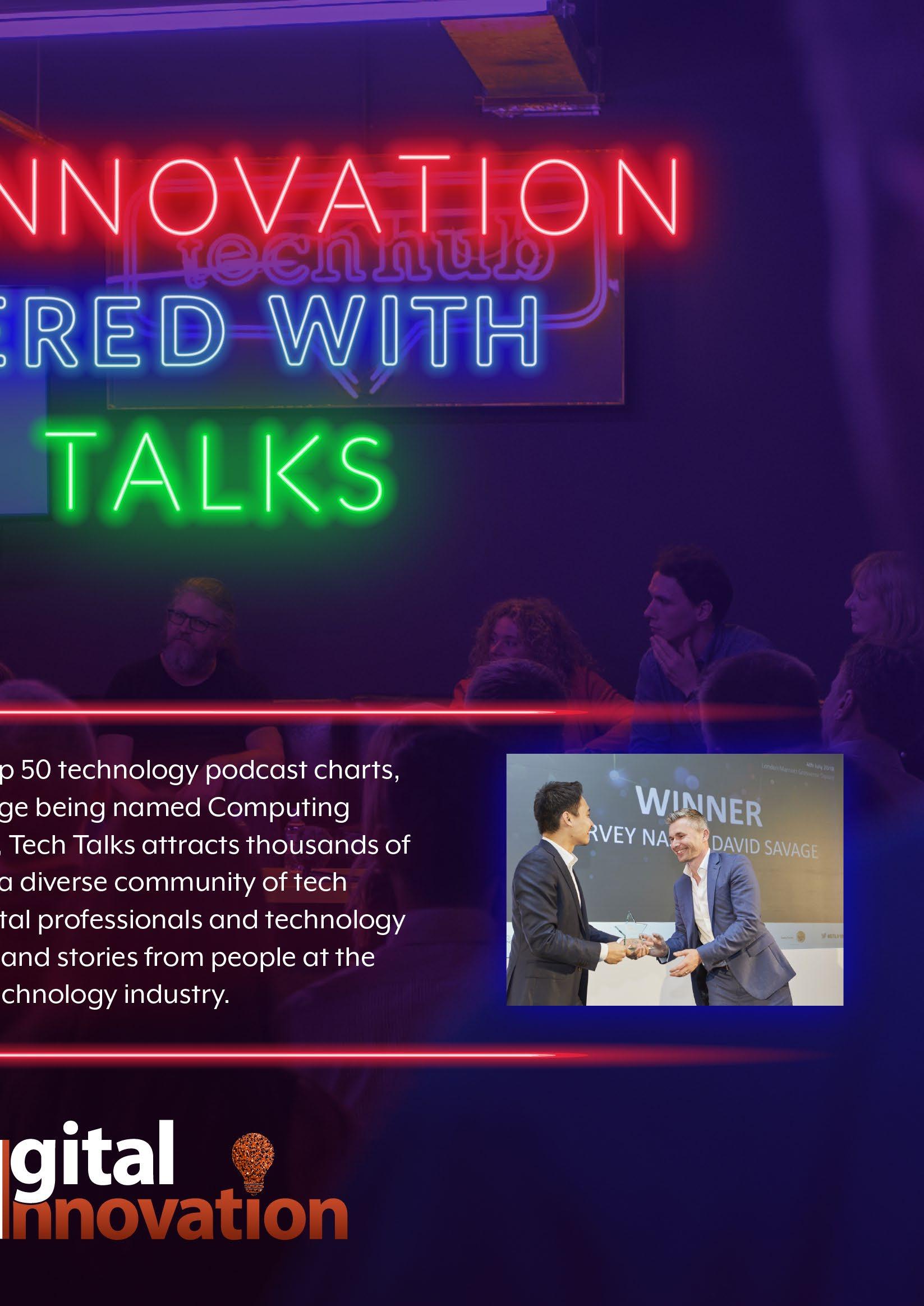
39
BUILDING
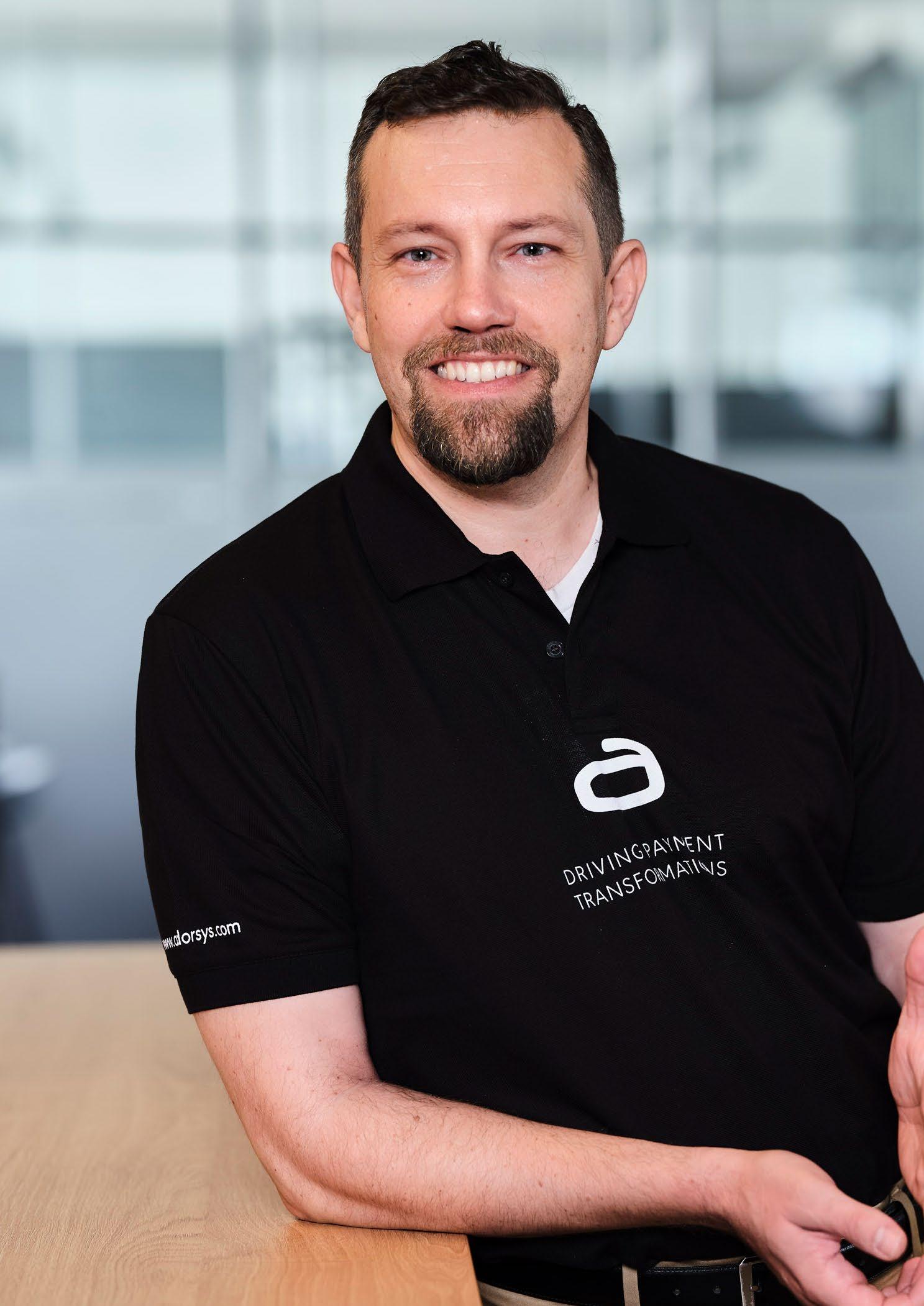 Andrew John Zeller
Andrew John Zeller
BUSINESS INTERVIEW
SECURING FINANCIAL ECOSYSTEMS
BUILDING & SECURING
FINANCIAL
ECOSYSTEMS
We talk to Andrew John Zeller, Managing Director International & Co-CEO DACH, and Florian Ramsbeck, International Sourcing Coordinator at adorsys, about the company’s plans for global expansion post-pandemic.

dorsys provides products and services for the financial services space and has become one of the go-to companies for businesses looking for digital payment and component solutions. Andrew explains, “Our focus is on technology and building systems for our clients. In general, we like to think of ourselves as building and securing financial ecosystems. My primary role is to come up with smart ideas and help guide the company where to go next, as well as make valuable connections. As a people person, I love this side of my job.”
Florian Ramsbeck, International Sourcing Coordinator at adorsys, joined the company in December last year in a bid to support adorsys scale on an international level. Florian says, “I have a well-established network of partners for nearshore operations in Eastern Europe, as well as offshore partners in India and Manila. The idea behind hiring me was to help adorsys grow by finding talent on-site and partners in the nearshore and offshore business. I’ve spent 10 years working in Switzerland and Romania, where I built up a nearshore centre

41
with 40 people. So, I know my way around running and partnering with nearshore centres.”
Andrew says that in terms of operations, adorsys is primarily focused on digital and financial models and architecting for scale. He continues, “We work for most of the major banks, adding huge dataintensive applications, whilst trying to remain retail banking and payments domain-focused. I think that from an operations point of view, that is what really distinguishes us from our competitors. At the same time, we also make sure the customer does not have to overspend, which is a huge concern in our industry. IT departments have been running into problems over the past couple of years, so we help
them to understand their situation, offering solutions that will match their budgetary possibilities.”
Another unique selling point relates to adorsys’ size in combination with its service portfolio. Florian adds, “We are one of the few providers that can offer nearshore and offshore services by being a rather small company of between 120 and 150 employees. This combination makes us attractive to other SME, which can talk to us at eye level and also benefit from near-/ offshore rates, requesting only a small team or single person. Big corporates are usually not interested in supporting requests with such a small volume.”
Founded in 2006, adorsys has a mantra of ‘loving your technology’, which


42
stems from the belief system of one of its founders, Francis Pouatcha. Andrew enthuses, “We hire people who love technology. Each time we use a system, there will be a team of people who come up with innovative ideas on how to improve it. We always invest in our own R&D to ensure people have time to transform these systems in answer to a need in the market. We make sure we are not doing technology for technology’s sake. We are very focused on what we are doing, and our people enjoy adding
their skills to existing systems, or even overhauling them completely.”

The organisation of adorsys is loosely based on a tribal structure, where a tribe fully supports a single project, but all the units are democratic and can decide how they do things and who they hire. Andrew says, “The result is that we have people working together who like working together. We have had a wonderful response from this model, so it will form the basis for

“We work for most of the major banks, adding huge data-intensive applications, whilst trying to remain retail banking and payments domain focused”
ANDREW JOHN ZELLER
43
our growth. Happy people is what we need for the future!”
On the technology side, adorsys has different technology roles responsible for monitoring which software or applications are in the process of scaling up, and which are likely to become obsolete. Florian adds, “The people occupying these functions really are on top of their technology. They have a good overview of what is stable and can therefore be very beneficial to our clients.”
adorsys prides itself on staying in close contact with its clients throughout the lifecycle of a project and beyond. Andrew enthuses, “By talking to our clients, we learn so much about what is relevant to them and where their needs and pain points lie, so we are able to match the technology to their challenges. We figure out the best solution for them, then revert to the client with our advice. In most cases, we can then move forward. Our clients like the fact that we feed ideas into their organisation, and we live off the feedback that we get from that process.”

There are several prominent projects that adorsys is working on currently. Andrew says, “We are building a completely new payments platform for a client based in the DACH region. For the last one and a half years, we have been transforming their entire business model, as well as defining their cloud journey on an AWS platform. It will be a very

competitive platform for our client in the payments market in this region.
“We are also working on an API gateway project for a retail bank to allow them to access their clients’ accounts and score them for retail products. We are looking
Florian Ramsbeck
"The partner network enables people with the right skillset we are running along our main FLORIAN RAMSBECK
44
enables us to provide the right skillset to enrich projects main products and services"

RAMSBECK
at the API gateways and building access components to the various banks, payment providers and fintechs, making sure that all the necessary data are retrieved, securely stored, and deleted after a period of time. One of the major challenges for Eastern
European banks is ensuring that they are GDPR compliant. It is a fun project because we get to use all these exciting, new technologies, without having to focus on legacy systems, which are often more dominant in our projects.”
In Ireland, adorsys is concentrating on its international activities and selling into the London market. Andrew explains, “We are primarily supplying talent into this market, which is new for us. We are also setting up a partner centre for all our international security operations out of Ireland and into the rest of Europe.”
Florian says the company recently had a request from a customer for a CRM project, for which adorsys was able to leverage its strong network of partners. He continues, “The partner network enables us to provide the right people with the right skillset to enrich projects we are running alongside our main products and services in our portfolio.”
So, how was adorsys impacted by the recent Covid-19 pandemic? Andrew answers, “The first few weeks saw clients postponing and cancelling projects, which we had to endure. It took us approximately a month to accept and adjust. We needed to make sure our clients could get the help they needed, so we changed the way we offered our services. Until then, we were on-premises because that is what the client wanted. Even though adorsys has always been a remote company, our clients were not used to this, so we had to ensure they had
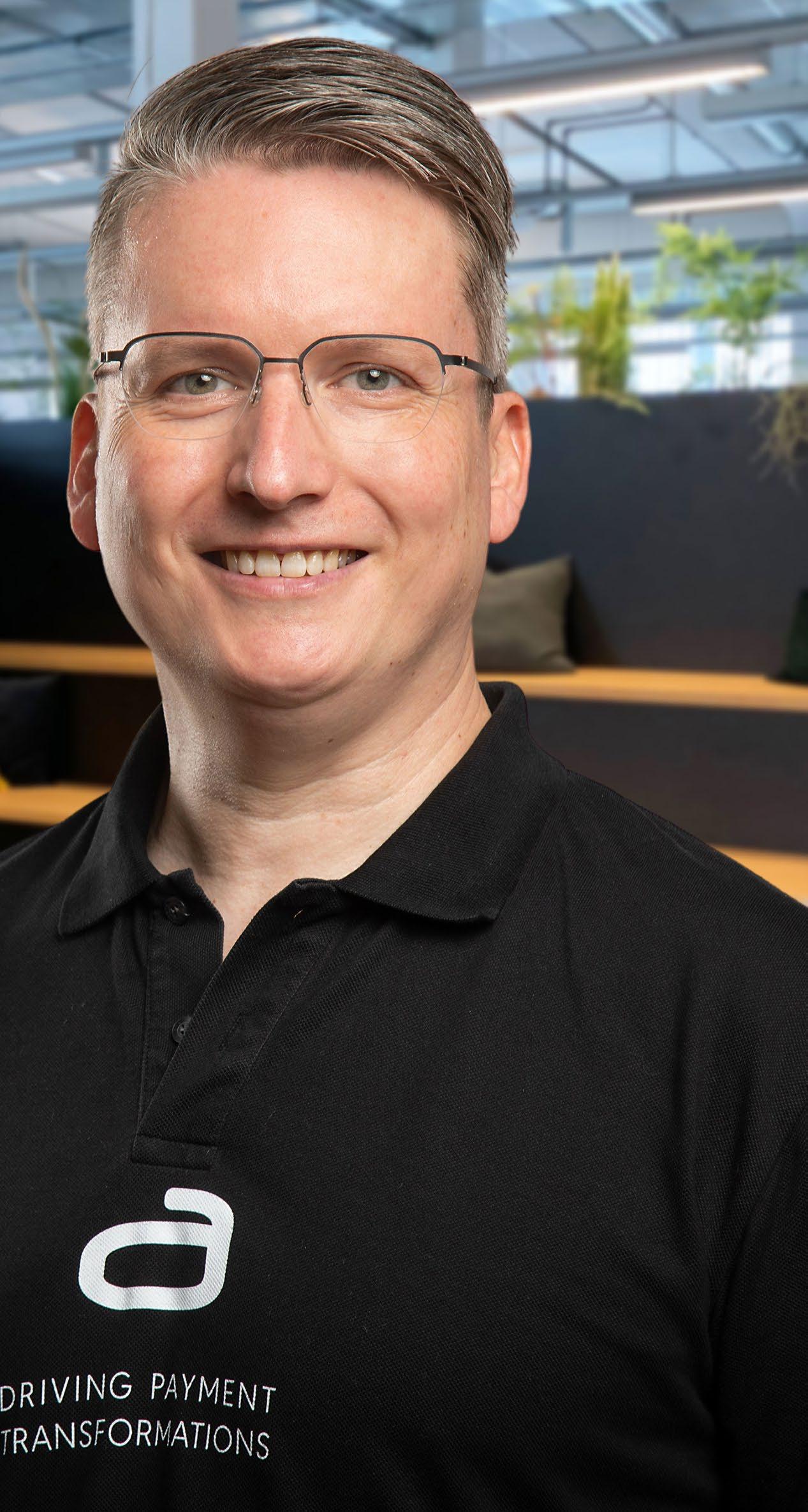
45

processes in place to manage a remote team.”
Andrew says if you want to maintain high energy levels, you have to ensure your people are entertained. This is especially important when managing remote workers. He elaborates, “We helped our clients to make sure people working remotely had some fun. It is often very simple, you don’t have to make it all work, no play. Something I personally love is ‘Beer Friday’. At the end of the week, we would sit down and have some virtual drinks together, allowing people to have a social connection back to the company. Once possible, we encouraged people to meet for a drink to talk about the current situation of a project and figure out the appropriate next steps. We also sent food packages to people so they could have dinner with their families, helping to keep them entertained. Life is not all about work; you need social contact, you need to know who you are working with, and if possible, you need to enjoy who you work with!”
After the pandemic, adorsys’ profitability was even stronger than before. However, they are still treading carefully as the industry has entered a phase of entropy. Andrew explains, “Unfortunately, nobody can predict the future. Companies are reprioritising and there is uncertainty in the market. One of the reasons why Florian has come on board is to assist us with leveraging growth via various international markets.”
Florian is very pleased to be heading up this task. The path for future growth
will also see adorsys leverage its ecosystem of trusted partners. Florian outlines three different types of partners:
1. Reselling – where products in the portfolio are offered to clients.
2. Scalability – nearshore or offshore partners help to provide talents in big amount and on a short notice.
3. Skill – niche product partners deliver specific skills or technologies to fill a gap.
As for the future of adorsys, Andrew is also excited by the company’s plans for South Africa. He adds, “We are actively growing our partner network and offices in South Africa. Perhaps even bigger than that, we are establishing a business unit purely focused on cybersecurity. We have seen so much demand from our clients to add a focused product on how to enhance their cybersecurity. The new business unit will be managed out of Dublin, but we will be working right across Europe with all of our clients.”
Florian’s previous role was in the cybersecurity space, so he is equally excited by this latest move. He concludes, “The new business unit is something I am very keen to support by leveraging my network and making it happen.”
Exciting times ahead!
For further information on adorsys, visit www.adorsys.com

47


LUXURY TECH
echnology has disrupted every market, from travel to financial services, and now a new generation of luxury players is offering wealthy consumers a range of products and services based on innovative technologies. Here, we present four of Europe’s leading brands epitomising the core elements of luxury.


Four European technology brands that have transformed the luxury market.


WHEELY

Bringing the Uber business model upmarket, 29-year-old Anton Chirkunov came up with the idea of Wheely. It provides chauffeurdriven executive cars, such as the Mercedes E-, S- and V-class, none of which is more than three years old. Its chauffeurs are suited and booted, each carrying an umbrella, and they will hold doors open for customers, as well as helping them with their luggage.

A spokesperson for the company said, “Wheely came up with a golden standard in ridehailing, and now our chauffeurs, who have to pass exams, are considered to be the best.”

THE RESTORY


The backlash against fast fashion and the desire by consumers to invest in a piece that has longevity has driven the value of what is known as ‘the repair economy’ in the UK to somewhere between £116million and £312million, according to WRAP, the sustainability charity.
The Restory is an on-demand restoration service for luxury shoes and designer handbags. With fans including superinfluencer Peony Lim and professional goalkeeper Asmir Begović, the aftercare service is available at a number of highend department stores.

CAPITALRISE

CapitalRise is a crowdfunding platform that connects luxury residential real estate developers seeking finance with investors.


CEO and Co-founder Uma Rajah said, “CapitalRise is a disruptor for the way it’s using technology to drive disintermediation of the old-fashioned property lending
sector. The appeal for developers is the access to quick and costeffective finance. The appeal for investors is being able to invest as little as £1,000 to access opportunities and returns of 9.5 per cent that are usually only available to banks and large institutions.”
HAWK YACHTS


In the very traditional world of yachting, Hawk Yachts is cutting costs by up to 50 per cent by building in commercial shipyards, rather than only using the wellknown superyacht yards.
CEO Matthias Bosse said, “The superyacht market has reached a tipping point. It’s known for building overpriced yachts with limited capability and high maintenance costs – perhaps why only two per cent of ultrahigh-net-worth individuals own a yacht. Our yachts bring some of the most beautiful and remote locations around the world that are usually accessible only by boat within the reach of high-end ocean explorers.”

Source: www.europeanlifemedia.com



METAVERSE
Meta launches Horizon Worlds metaverse app in Spain and France.

Meta, the social network company, has expanded the services of its flagship metaverse app, Horizon Worlds, to Spain and France.

his move is part of the expansion plan of Meta to offer these services to more countries in Europe this year. While the app was available as an inviteonly service in 2020, it just opened its services to the general public in December 2021 for the US and Canadian markets.
In a post, the social media conglomerate recently announced that all citizens over 18 years old in Spain and France will have the opportunity to enjoy the metaverse service using one of the VR headsets sold by the company.

58

“Horizon Worlds lets users experience a VR world in which they are represented by a configurable avatar, and can roam worlds created by other players and experiences developed by companies”
Horizon Worlds lets users experience a VR world in which they are represented by a configurable avatar, and can roam worlds created by other players and experiences developed by companies. The launch in these


two countries is part of a move that will seek to launch Horizon Worlds in more European countries before 2023.
Having opened its services to the US and Canada last year, this
60


“Spain is a country that is especially important for the company, as it has decided to invest more than a billion dollars to build a giant data centre in the region of Talavera de la Reina”
61

move was followed by the launch of its platform to the UK, Ireland and Iceland-based customers this year.
Spain is a country that is especially important for the company, as it has decided to invest more than a billion dollars to build a giant data centre in the region of Talavera de la Reina. About this, Javier Olivan, COO at Meta, declared that Spain is at the forefront of European tech.

The country benefits from having two strong tech hubs, Barcelona and Madrid, so as Meta prepares to help build the metaverse, Spain is being

“The country (Spain) benefits from having two strong tech hubs, Barcelona and Madrid”
63
placed at the heart of its plans.
In addition, a new Meta Workers’ Hub will also be built in Madrid, as well as another project, the Metaverse Lab, which the company is building in partnership with Telefonica, in order to entice companies to produce metaversebased products.
However, the Spanish government has also requested Meta respect the national laws when it comes to the handling of user data collected by the company in its apps.


According to local media, Pedro Sánchez, President of Spain, stressed that the data of the Spanish people would have to stay in Spain and be processed according to local laws.
For further information on Meta, visit www.metacareers.com
Source: www.bitcoin.com
“Pedro Sánchez, President of Spain, stressed that the data of the Spanish people would have to stay in Spain and be processed according to local laws”
64





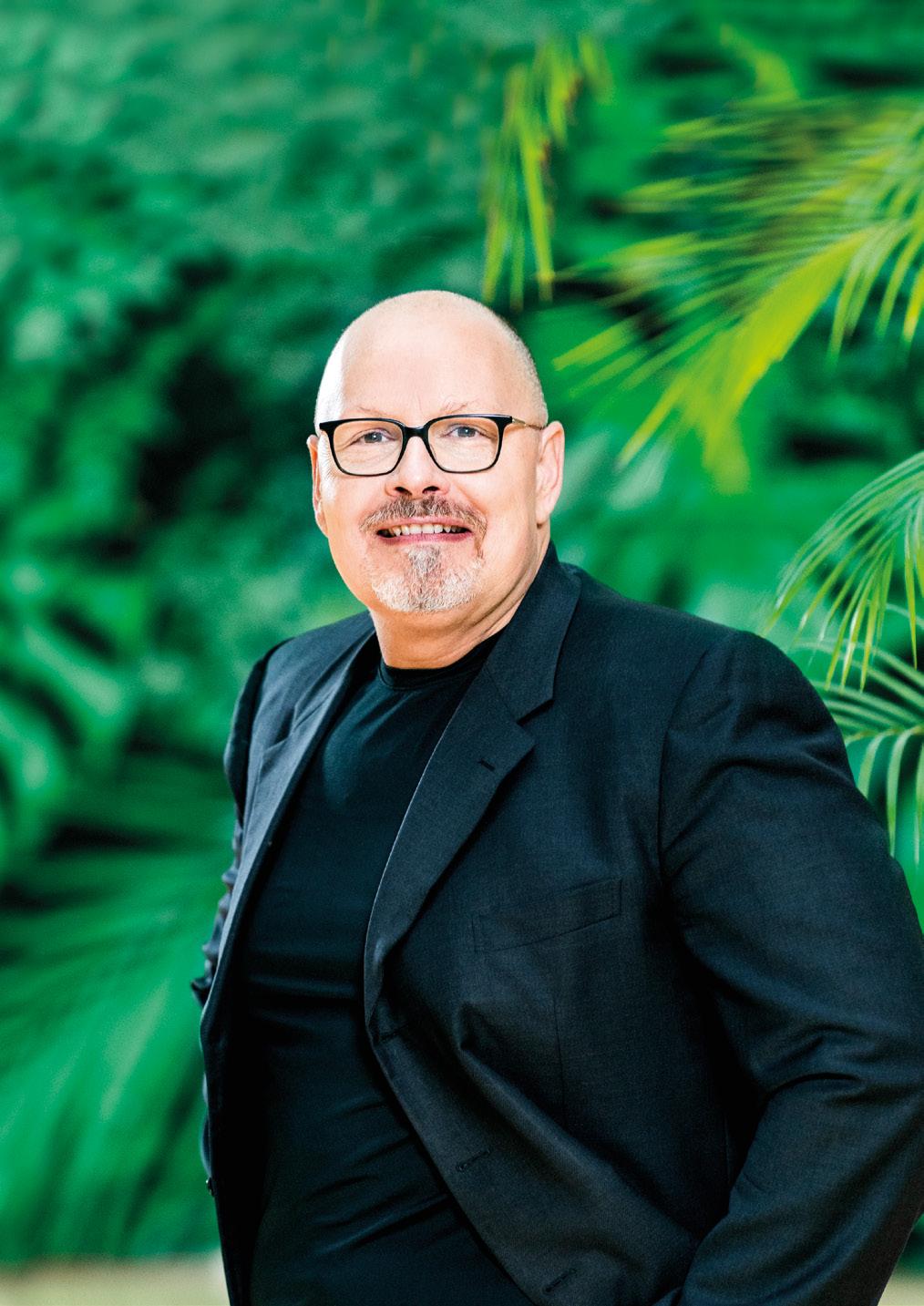

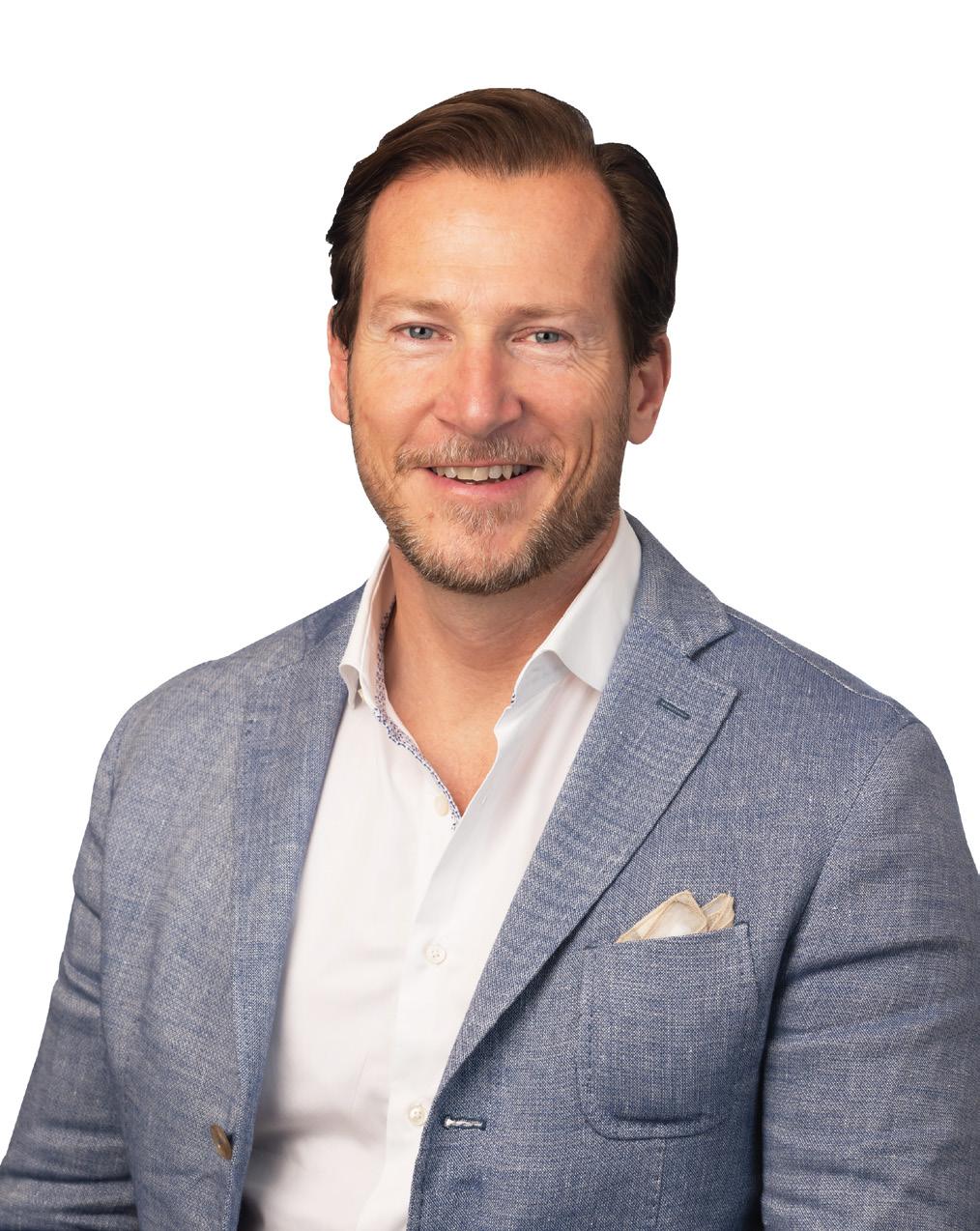




 Danny
Danny
extensive IT continued and efficiency Netherlands



"A highly professional approach"
Andy Brierley, Vice President, Cloud Application Modernisation at IBM
"Digital innovation Magazine is a very flexible and professional team"
Kim Larsen CTIO, T-Mobile Netherlands
"Absolute pleasure working with the Digital Innovation team" Mun Valiji, Chief Information Security Officer at Sainsbury’s
"The team were professional and diligent throughout" Leigh Feaviour, CTIO for BT’s Supply Chain


68 BUSINESS INTERVIEW
On a Path to Autonomous Grocery Store Operations

Henna Hynynen, Head of Finance, Partnerships & Marketing, at Blockstore Group, shares her company’s vision of 24/7 autonomous and automated grocery stores across Europe.

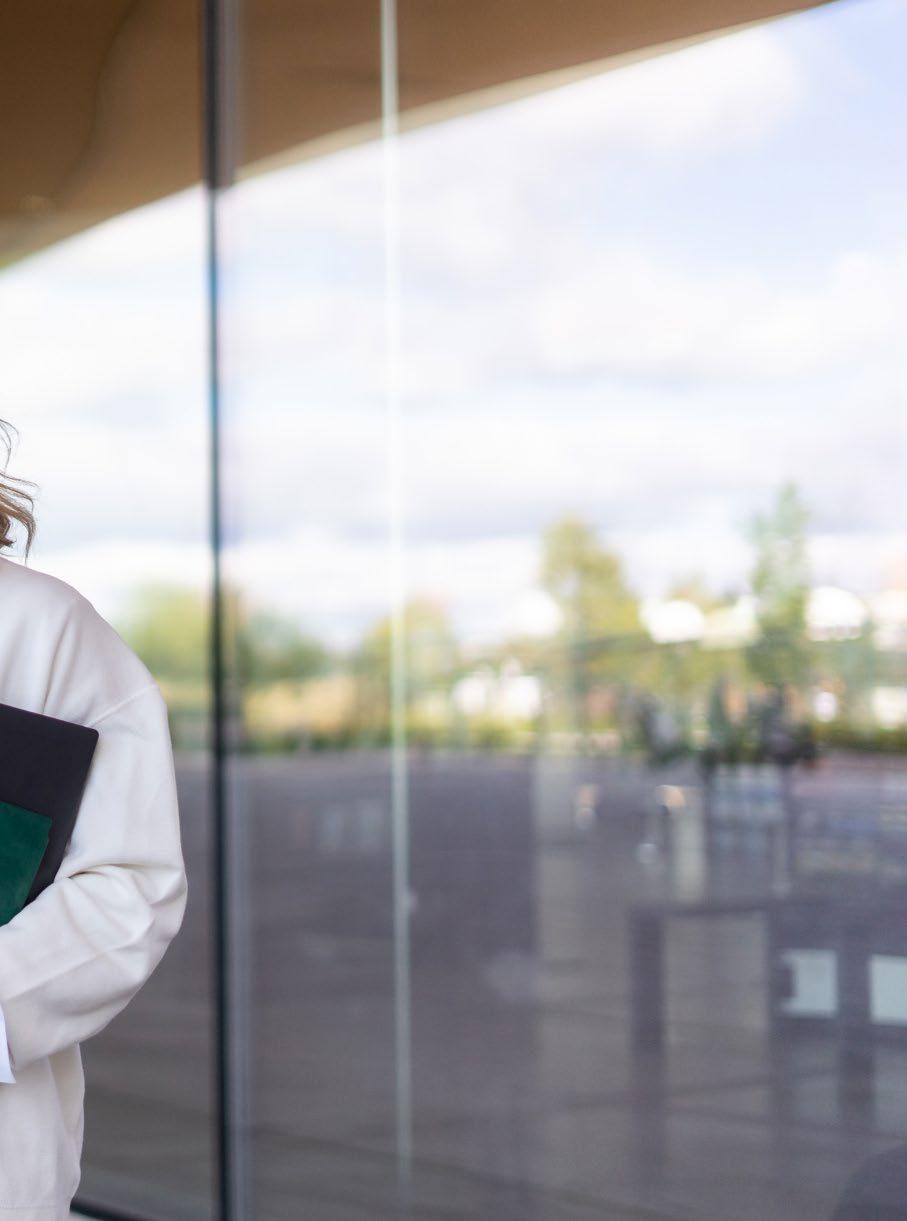
69
Click to watch the Blockstore video
 Juha Maijala CTO Head of Finance, Partnerships & Marketing
Juha Maijala CTO Head of Finance, Partnerships & Marketing
 70 CEO
Jussi Nummela
Henna Hynynen
Sanna Mäenpää Head of Operations
70 CEO
Jussi Nummela
Henna Hynynen
Sanna Mäenpää Head of Operations
lockstore Group is a technology start-up from Finland that offers autonomous and automated grocery store infrastructure and services. Founded in 2020, it works with grocery retailers in supporting them to open up autonomous and automated grocery stores.


Henna Hynynen is Head of Finance, Partnerships & Marketing at Blockstore Group, and responsible for supporting and managing the company’s growth initiatives in the name of expansion and results. Henna explains, “Our aim is to understand the customer, their challenges and pain points, to help them create a better world for everyone. Smaller supermarkets find it hard to profit if they are brought closer to the consumer in traditional ways. With the help of technology, we can support them to bring their stores closer to the customer in an autonomous and automated way, combining online channel to in-store services, along with different delivery methods.”
Henna says Blockstore Group is founded on the principle of looking beyond the store itself to create autonomous grocery stores with automated operations. She continues, “We provide the technology infrastructure with redesigned key business processes. Even though we are a technology
71

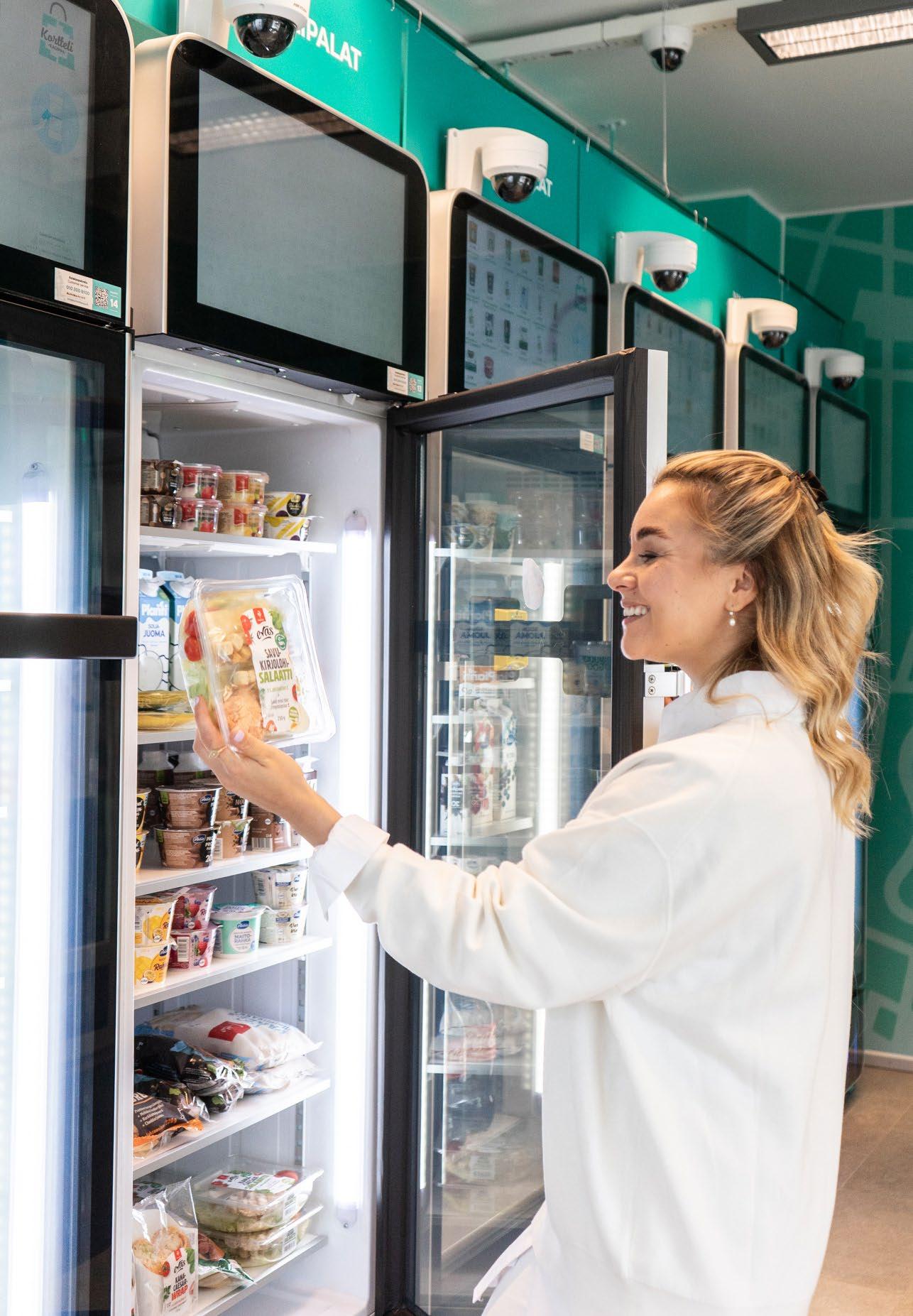
72
company, technology is just one piece of the puzzle in our solution. Focusing on the operations is equally important to make the concept work and capture all the business benefits.”
So, what value does Blockstore Group bring to the grocer? Henna answers, “Our solution offers efficiencies across
other players are not offering this type of complete solution in the market. For a grocer opening up autonomous and automated smart grocery stores, our technology infrastructure enables extraordinary capabilities. Our smart stores can monitor and report on their own condition, generating previously unavailable insights into the performance of the store. Grocery operations can be controlled and managed through remote access, providing the ability to customise each store. Through the combination of monitoring data and remote control capabilities, new opportunities for optimisation are created for the grocer.”
the end-to-end value chain, and this is what makes us so unique. Our cloudbased technology platform reaches all the way to key business capabilities, such as supply chain, for example, and then we can provide real-time data of the automated operations. This is a differentiating factor because
Blockstore Group plans to further develop its solution, applying more artificial intelligence and machine learning, so grocers can benefit from algorithms to substantially improve store operations. In turn, this will lead to greater autonomy, as the stores learn to adapt to the new environment. Henna continues, “The business capabilities available in our solution include automatic inventory management through real-time itemlevel tracking of goods. We can see real-time capacity levels of goods at both the store and the warehouse, as well as the best-before dates of each item. This gives opportunities to apply dynamic pricing remotely, for example. We have automated grocery store replenishment systems, so our smart stores are able to analyse themselves when products are running low, sending orders

“We have automated grocery store replenishment systems, so our smart stores are able to analyse themselves when products are running low”
73
independently to the warehouse for their replenishment needs. No humans are therefore needed in the ordering process.”
In the near future, Blockstore Group will be looking at developing robotics to handle the RFID tagging operations of multiple SKUs and the different types of products, ready for when volumes increase. Robotics will be the most efficient way for grocery tagging

operations. Henna adds, “The visibility of the exact number of goods, the remaining shelf life of each item and knowledge of the delivery frequencies, together with automated operations, support grocers to become more sustainable and increase productivity and profits. This is what we provide today to our customers.”
Henna says innovation and technology will play a key role
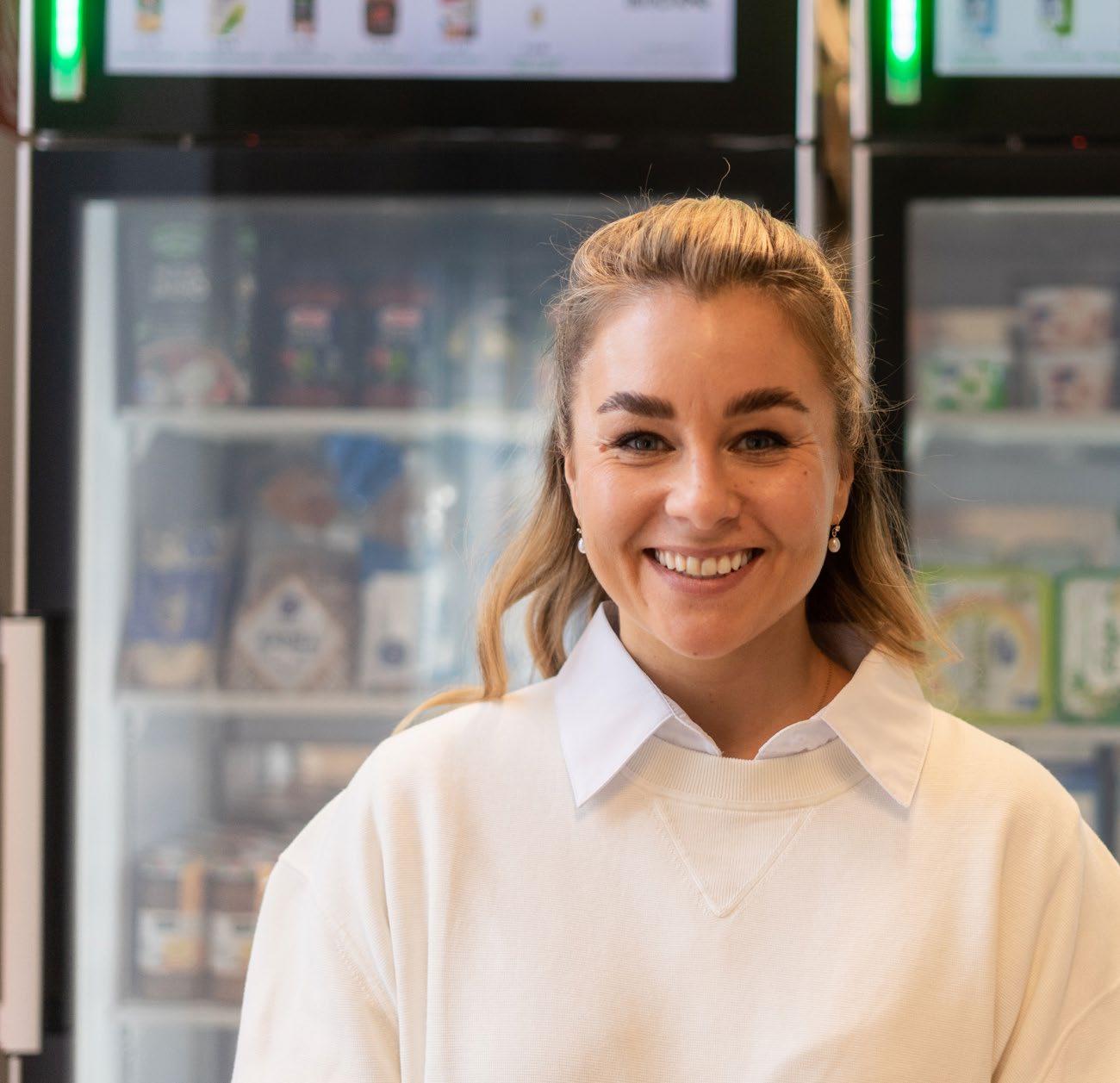
74
in helping to grow and scale the business. She explains, “Innovation is a huge part of what we do because we are turning an idea into a solution that gives value to our customers. We always need to stay on top of the emerging technologies, but knowing the customer is the strongest competitive advantage we can have in any market because it opens up the opportunity to create better value. In my job, I need to understand the
customer’s environment to have a strong value proposition and business model, so I focus a lot on having a good understanding of market analysis, competitive analysis, global market conditions and key trends. In this way, we are able to support our customers in bringing the best business benefits they expect from autonomous and automated grocery stores.”

According to Henna, building a strong team of people alongside the technology side is crucial to be successful. She continues, “When you look at the research on why start-ups don’t make it, the wrong team is often among the top reasons. Scaling a start-up requires a huge set of skills, and one person cannot have them all. Our core team consists of four people, and we each bring a different skillset and experiences to the table. As a team, we understand each other’s motivators and stressors. Some of us are more dynamic and fast-paced, while others are more thoughtful or people-focused. In the end, I do believe we have an all-star team. We all have the desire to make things happen. It is not just about having a vision; you need to be able to execute it. We have also built a solid network of different stakeholders because we believe relationships play an important role in our success.”
Henna reflects on the company culture at Blockstore Group. She says, “Our culture echoes the personalities and passions of our team members. In smaller companies, the individual

75
contributions of the team are more impactful. Our purpose is to challenge the status quo and relentlessly pursue opportunities to build a profitable company that creates long-term value for its customers, end users, partners and investors. To succeed, we need to have a growth mindset. I am inspired by the success of others, and we all value open communication, treating others with kindness and respect. We have a flat hierarchy, so we are very adaptable to changing situations.
We find it crucial to nurture a space in which we feel comfortable to think differently and are encouraged not to limit ourselves.”
It would be almost impossible for a small start-up to create a groundbreaking grocery store solution without having the right partners on board. Henna continues, “We partner with companies that think the way we think, but offer something different to our solution to make it more complete. These partnerships bring
our full end-to-end solution alive. In the future, we will work together to bring additional capabilities and features to our solution. Our partners are also willing to co-develop step after step, so the pace is continuous. When we enter different markets, we look at finding new partners to support us in having a faster market entry. We have started offering our solution in Europe, so we need to have a strong partner network throughout it. After that, our plans are to go global, especially into North America.”
Beontag and BLEAM are two such partners that play very important roles in Blockstore Group’s solution offering. Henna explains, “We use Beontag RFID tags to uniquely identify each piece of the merchandise. Once items are received at the store, they can be placed in the cabinets that display the goods for sale, which shoppers then access. These RFID tags make it possible to identify all items automatically and reliably in

“Beontag’s solution has proven to be the best for grocery stores, bringing more benefits than any other technology on the market. We have therefore chosen RFID to be one of the core technologies in Blockstore Group’s solutions”
76
ESG enabler for the value chain


The ECO Tag reduces CO2 emissions by more than half compared to standard RFID tags, making it an excellent and valuable ESG ally for companies that have climate-related goals.
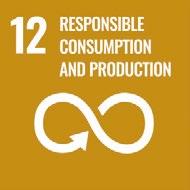
 Barbara Dunin Beontag’s Marketing & ESG Director
Barbara Dunin Beontag’s Marketing & ESG Director
The ECO RFID tag is a sustainable product with an exclusive and unique technology developed by Beontag in Finland. It is an excellent choice for companies that aim to invest in sustainability combined with high-quality and cutting-edge technology.






 Juha Ikonen Beontag’s Head of R&D Digital Transformation Enabler
Juha Ikonen Beontag’s Head of R&D Digital Transformation Enabler
Digital transformation in the most sutainable way
ECO is the sustainable choice for the main RFID applications
77
Beontag.com beontag beontag
Frictionless payments for automated retail
real time throughout the entire endto-end value chain, from warehouse to store, enabling real autonomous operations. Beontag’s solution has proven to be the best for grocery stores, bringing more benefits than any other technology on the market. We have therefore chosen RFID to be one of the core technologies in Blockstore Group’s solutions.”
Beontag has been a global pioneer in developing sustainable RFID tags that are plastic-free and made with eco-friendly manufacturing processes. Henna adds, “Given their sustainability commitments, Beontag are a natural partner for us. Sustainability plays a big role in today’s grocery business, as we move from manual to digital processes. Beontag has achieved remarkable results around this essential topic.”
Blockstore Group continuously deals with payment systems, whether it’s with customers’ existing solutions or in creating Blockstore-enabled payment methods. This is where BLEAM comes in. Henna explains, “BLEAM is an internationallyrecognised expert in utilising and developing the latest payment technologies and integrations for pursuing the most frictionless payment process for consumers. In addition, BLEAM provides a trusted backbone for our software development roadmap, as their expertise covers all bases, and they play a very important role in our modern walk-in-walk-out self-service shopping experience.”

An alternative to traditional customer aquiring and payment processing
“BLEAM provides a trusted backbone for our software development roadmap, as their expertise covers all bases”
78 Visit our website and learn more www.ble.am
STEP 1
Walk in
All consumers can enter the grocery store 24/7, using their registered smartphone app or showing their credit/debit card at the payment terminal to start shopping.
STEP 2
Shop
Once the payment method has been accepted, character recognition technology and sensor systems are used to understand which cabinets need to be opened, when and to whom. When the consumer places their hand on the intelligent cabinet door handle, it instantly unlocks itself, enabling the customer to select their items.
STEP 3
Walk out
Once the person has finished their shopping, they can leave the shop and payment is automatically taken. A receipt of the shopping is available in the app or it can be printed at the payment terminal.
Blockstore Group’s future plans include delivering the first white label customer stores and preparing to scale the business across Europe and North America. Henna explains, “As we open up our first customer stores, we need to start accelerating and further developing the technology to be better fitted to even bigger supermarkets. At the same time,
we need to be able to improve our cost efficiency from both the consumer and retailer perspective. Understanding how we can make the process even easier, faster and smoother for the consumer is always at the forefront of our mind. We want to strengthen our capabilities in combining traditional bricks and mortar stores with great online
 Henna describes the walk-in-walk-out shopping process as encompassing three steps.
Henna describes the walk-in-walk-out shopping process as encompassing three steps.
79
capabilities, along with the different delivery methods such as click and collect, home delivery, or instant versus scheduled delivery. Having a strong omnichannel offering that works seamlessly across the different channels is clearly defined in our roadmap.”
The ultimate goal for Henna and her team is to create long-term value for all stakeholders. Henna says, “Our growth strategy expands beyond financial metrics to encompass

human, social and environmental values. We are at the forefront of the change, so it is important to stay curious and not to limit ourselves. Our promise to our customers and partners is to be the experts in autonomous grocery stores and their future opportunities. To succeed, we need to continuously improve the concept and design, building on the facts and exploring new technologies. The solution that we offer today is a strong foundation for autonomous and automated grocery stores.

80
“Step by step, we are improving it by introducing new functionalities and capabilities to be the number one choice in the eyes of our customers in the long term.”
As a final point, Henna highlights the importance of sustainability, which is at the core of what Blockstore Group is all about. She concludes, “Sustainability has been in our DNA since we were founded. I am proud of how our solution supports grocers in their sustainability efforts. We
work hard to continuously improve our solution to be more sustainable through research and testing new innovations. Our solution brings the right products at the right time to the right place, making processes more efficient and strengthening communities store by store. It has opened up a whole world of opportunities.”

For further information on Blockstore Group, visit www.blockstoregroup.com

“Our solution brings the right products at the right time to the right place, making processes more efficient and strengthening communities store by store. It has opened up a whole world of opportunities”
81
The
Tech Race Europe Can't Afford to Lose
A new report highlights Europe’s position in quantum computing advances.

QUANTUM

Investments in quantum reached all-time record highs in 2021 and are predicted to continue rising significantly, with multiple existing industries set to benefit and new industries likely to be created.
oston Consulting Group (BCG), one of the world's leading management consulting firms, recently published new research highlighting the scale and pace of global quantum computing, titled ‘Can Europe Catch Up With the US (and China) in Quantum Computing?’.
While the US is a clear frontrunner on quantum computing patents, venture capital and volume of talent, the BCG report finds that the EU currently leads the way in terms of public investment. However, the EU lacks a coherent plan of action to coordinate individual Member State activities, has an


underdeveloped private capital market prepared to invest in latestage quantum businesses, and is not developing sufficient quantum computing talent to meet anticipated demand. BCG's report highlights that the US currently has between two and three times more quantum talent in the business world than the EU.
Without urgent action, the report shows, the EU risks repeating mistakes made in the semiconductor industry. Europe, together with the UK and China, is currently well-positioned in a trio of pursuers that are chasing the US.
The EU is among leaders in public action in quantum and has put in place plans such as the Quantum

“Quantum will impact multiple industries central to a country’s competitiveness and sovereignty, such as aerospace, defence, pharma, and chemicals”
Flagship, coordinating research efforts across multiple industries, and running pilot educational projects to give a direction to the developing ecosystem.

So, what does the EU need to do to avoid repeating the mistakes it made more than a decade ago in failing to scale a continental semiconductor
industry? François Candelon, a Managing Director and Senior Partner at BCG, and co-author of the report, answers, “The EU has all the ingredients needed to succeed in the quantum race but needs to rapidly develop and deliver a comprehensive plan to turn potential into action. Europe's history when dealing with tech revolutions has too often been
characterised by early promise, failure to scale at critical moments, and then an expensive attempt to catch up. Policymakers need to learn those lessons fast. The good news is that the window is still open to create and execute a European strategy, building public and private capital powerhouses to invest in and scale European universities’ ability to train the next generation of quantum experts.”
BCG's report maps an action plan for Europe to maintain quantum sovereignty:

• First, create an integrated EU-wide action plan that aligns Member State programs and strategies.
• Second, close the European investment gap, particularly for late-stage funding, to allow European start-ups to scale quickly.
• Third, build an end-to-end talent pipeline from high school to postgraduate to create enough talent to meet surging business demand.
The Covid-19 crisis highlighted Europe’s capability to design
“If Europe wants to maintain as well as self-sufficiency it must master quantum of the supply chain, from and end applications”
maintain its global relevance, self-sufficiency in key economic areas, capabilities in all stages from R&D to manufacturing applications”
and manufacture at scale new vaccines that proved essential to controlling the impact of the pandemic on the continent. Conversely, the lack of in-house European manufacturing capabilities for advanced semiconductors showed its dependence on a global supply chain. According to BCG estimates, the chip crisis prevented the production of around 10 million vehicles, which was particularly impactful for Europe, home to major automobile manufacturers.
Quantum will impact multiple industries central to a country’s competitiveness and sovereignty, such as aerospace, defence, pharma, and chemicals. If Europe wants to maintain its global relevance, as well as self-sufficiency in key economic areas, it must master quantum capabilities in all stages of the supply chain, from R&D to manufacturing and end applications.

To read the report in full, visit www.bcg.com
Source: www.prnewswire.com
CREATING A
TECHNOLOGICAL HUB
Fractus and the UPC have joined forces to work together to develop deep tech solutions.

DEEP TECH

FRACTUS AND THE UNIVERSITAT POLITECNICA DE CATALUNYA –BARCELONATECH (UPC) HAVE AGREED TO CREATE THE FRACTUS-UPC DEEP TECH HUB, A CENTRE OF RESEARCH ACTIVITIES, WHERE DEEP TECH TECHNOLOGIES WILL BE DESIGNED AND IMPROVED, WITH THE AIM OF DEVELOPING DISRUPTIVE TECHNOLOGICAL SOLUTIONS BASED ON SCIENTIFIC CHALLENGES WITH GREAT POTENTIAL AND SOCIAL IMPACT.

ractus is an early pioneer in developing internal antenna technology for smartphones, tablets and other wireless Internet of Things devices and holds an intellectual property rights portfolio of more than 30 inventions protected through over 120 patents and patent applications in the United States, Europe and Asia. The company has received numerous awards and honours over the years for its innovative work.
The UPC is a public research and higher education




THE FRACTUS-UPC DEEP TECH HUB WILL FOCUS ON TALENT DEVELOPMENT, TRAINING, INNOVATION, RESEARCH AND TECHNOLOGY TRANSFER ACTIVITIES
institution specialised in the fields of engineering, architecture, science and technology, and is one of the main technical universities in Europe. Currently, it maintains links with around 2,000 companies and offers a high job placement rate for its graduates – 93 per cent find work shortly after graduating. It is also a leading university in Spain in raising funds for R+D+I projects financed by the Horizon 2020 program.
The Fractus-UPC Deep Tech Hub will focus on talent development, training, innovation, research and technology transfer activities, and will actively and strategically contribute to the creation of UPC start-ups and/or spin-offs in the field of deep tech, founded on a scientific discovery or a technological innovation, with the purpose of promoting its access to the market. The deep tech field



DEEP
encompasses the development of disruptive solutions based on deep technologies linked to science or advanced engineering, to respond to global challenges.

TECHThe agreement, signed on September 13th, by the Dean of the UPC, Daniel Crespo, and the President and CEO of Fractus, Rubén Bonet, foresees that the activities of the hub are aimed at responding to current challenges through scientific and technological advances, while promoting research, innovation and knowledge transfer in areas such as mobility and logistics, materials, sustainability, urban planning, information and communication, biomedical engineering, and environmental and energy technologies. The emerging areas of quantum computing, photonics, artificial intelligence, cyber security, robotics, electronics and advanced materials will be some of the other fields in which the activities of the hub will be focused.
The hub will also promote the UPC's R+D+I in the deep tech field through industrial doctorates, collaborations in research and innovation projects, the promotion of research lines or the development of workshops, as well as the incubation and

acceleration of companies, among others. It is also planned to promote innovation challenges, prizes and forums aimed at students, as well as end-of-degree and masters theses in this field.

The UPC is one of the main deep tech clusters in Europe, with a powerful core of research groups that research and develop

THE UPC IS ONE OF TECH CLUSTERS IN A POWERFUL CORE GROUPS THAT RESEARCH DEVELOP TECHNOLOGICAL IN THIS FIELD
technological innovation in this field, and from which several spinoffs and start-ups have emerged, including Fractus.


For further information on Fractus, visit www.fractus.com
For further information on the UPC, visit www.upc.edu
Source: www.prnewswire.com
OF THE MAIN DEEP IN EUROPE, WITH CORE OF RESEARCH RESEARCH AND TECHNOLOGICAL INNOVATION
Drone Hopper is an aeronautical engineering company based in Madrid.
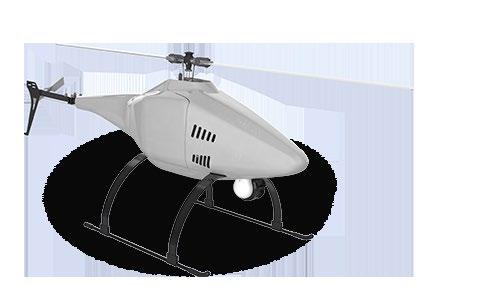

Drones derived for the consumer market are quite limited in terms of payload and flight time and cannot cover most of the performance requirements for businesses. Drone Hopper’s mission is to produce the best high load capacity drones on the market, thanks to continuous investment in R&D. The company expects to become a major player in the next industrial revolution of drones in the near future.

The dedicated team is continually pushing for better development and continuous technological evolution of its cutting-edge products including its multirotor electric drone for
 rone Hopper designs, manufactures and markets high-load capacity drones, primarily for firefighting, agriculture and logistics solutions, through a family of products highly focused on solving aerial needs.
rone Hopper designs, manufactures and markets high-load capacity drones, primarily for firefighting, agriculture and logistics solutions, through a family of products highly focused on solving aerial needs.
100
IN THE SPOTLIGHT
agricultural use, drones designed to cover all types of security and defense missions, rescue, inspection, border control and data production, and delivery drones developed to carry heavy loads over long distances.


The system is capable of autonomously performing a mission from takeoff to landing,

and all elements have undergone qualification tests for more than 200 flight hours.
To find out more about Drone Hopper, visit www.drone-hopper.com

101 “Drone Hopper’s mission is to produce the best high load capacity drones on the market, thanks to continuous investment in R&D”


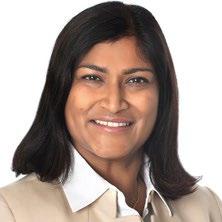





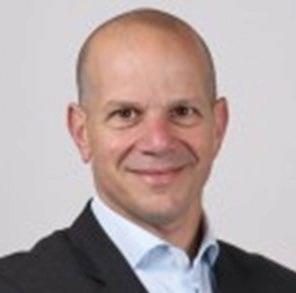
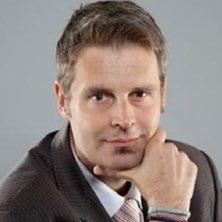
102 FUTURE-PROOF MANUFACTURING STRATEGIES FROM INDUSTRY LEADERS Marc Winkelman Global Director Manufacturing Innovation Capability Proctor & Gamble Dr. Peter Schu Head of Process Science and Local MSAT GSK: GlaxoSmithKline Biologicals Emanuele Quarin Digital Industrial Operations Director EU – Electrolux Frank Polky Head of OT Security Mars Lior Bonfis Vice President - Head of Systems Manufacturing Philips Corrado Iorizzo Domain Architect Manufacturing & Engineering Solutions –IT Operations Leadership Team Member Philip Morris International Vitor Gregorio Regional President Europe South, Africa & Latam, Bosch Brintha Koether MEA Manufacturing & Industrial Lead AWS Jose Manuel Domingo Cristo VP Operations EMEA Clarios Use the discount code for 20% off your delegate pass ems-summit.com/book-now EMS20














































 Tailor-made solutions & Additional services for your specific IT, Cloud & Security needs.
Tailor-made solutions & Additional services for your specific IT, Cloud & Security needs.





















 Andrew John Zeller
Andrew John Zeller







































 Danny
Danny



 70 CEO
Jussi Nummela
Henna Hynynen
Sanna Mäenpää Head of Operations
70 CEO
Jussi Nummela
Henna Hynynen
Sanna Mäenpää Head of Operations






 Barbara Dunin Beontag’s Marketing & ESG Director
Barbara Dunin Beontag’s Marketing & ESG Director





 Juha Ikonen Beontag’s Head of R&D Digital Transformation Enabler
Juha Ikonen Beontag’s Head of R&D Digital Transformation Enabler


























 rone Hopper designs, manufactures and markets high-load capacity drones, primarily for firefighting, agriculture and logistics solutions, through a family of products highly focused on solving aerial needs.
rone Hopper designs, manufactures and markets high-load capacity drones, primarily for firefighting, agriculture and logistics solutions, through a family of products highly focused on solving aerial needs.











